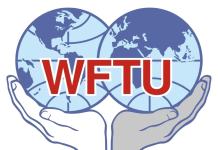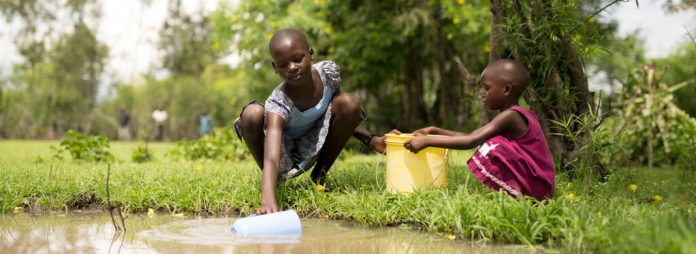21 Mar 2023
The WFTU on behalf of its 105 million workers in the 5 continents, on the occasion of the World Water Day on 22 March, intensify its constant struggle for the right to free access to safe and drinkable water with guaranteed its quantity and quality for all the people.
Clean water, sanitation and hygiene (WASH) are essential to human health and well-being and are especially important in the context of infectious disease outbreaks. Nevertheless the last years, 80% of countries reported insufficient financing to meet national WASH targets while 29% of the world population have no access to safely managed drinking water services free of contamination, microorganisms, chemicals, and radioactive elements, acceptable in terms of color, odor, and taste, located on premises, available when needed. In addition 40% of households globally lacked basic handwashing facilities with soap and water in their home. (WHO – World Health Statistics 2021). In addition every day 1000 children die because they drank polluted water according to UNICEF.
Even before the outbreak of the COVID-19 pandemic hundreds of thousands of deaths were recorded due to unsafe drinking water, unsafe sanitation, and lack of hygiene (870 000 deaths in 2016). Access to water must meet physical, economic accessibility, access to information, and access without discrimination. The commercialization of water leads to unhealthy living conditions and deaths. Most deaths due to lack of water and sanitation are recorded in Africa which, although is responsible for less than 4% of greenhouse gas emissions, is severely affected by climate change with a mortality rate four times higher than the global average.
Moreover even in 2020 – after the outbreak of the current COVID-19 pandemic- the health care facilities facing enormous difficulties while a quarter of health care facilities lacked basic water services, exposing 1.8 billion people and one in three did not have hand hygiene facilities at the point of care. Also one third of health care facilities did not segregate waste safely and one out of ten had no sanitation service at all (WHO – World Health Statistics 2021).
The World Federation of Trade Unions stand in solidarity with the hundreds of millions of people who suffer from the uneven distribution natural recourses, the lack of clear water and sanitation facilities and reiterates its firmly position, demanding:
Collected, processed and distributed at low cost or even free of charge to the tap of the consumer under the central responsibility of a unified public conveyor without the involvement of private enterprises, and according to all rules of health engineering, which require:
Construction and function of modern water process units, regular monitoring of the processed outflow, a reliable system for the destruction of micro organisms and parasites, a complete and safe distribution net to the users and their place of residence.
The statutory safety provisions, the existence of which is a basic prerequisite for achieving the quality standards of water are to be kept under constant observation.
The monitoring of water quality and its complying with all the relative conditions must be performed by public authorities.
Public authorities should directly and effectively undertake all the corrective actions required in cases of divergence of water from the safe limits set by the relevant law of each state.
Water is a social good, not a commodity











